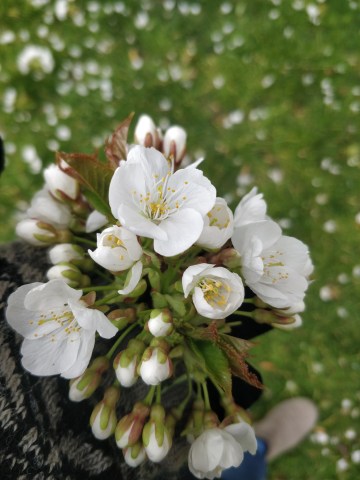My notebooks

I keep notebooks – a little obsessively, it turns out. When I had to go to Kent for rehearsals last weekend, I got on the train with pen and notebook in hand, only to discover that my notebook was only one page from being finished. That one page didn’t last me to Ebbsfleet, and for thirty five, stressful, borderline traumatic minutes, I had nothing on which to write. Needless to say, I always have a reserve notebook for just these emergencies, but had, in a moment of naive foolishness, left my reserve at home in London, and so on arrival in Canterbury I had to race to the nearest stationer and get a new notebook, or suffer the dire psychological consequences.
I also have a slightly obsessive relationship with pens. I write all my novels on the computer, because it’s far faster and, interestingly, the speed at which I write changes my narrative voice. But I take a lot of longhand notes first – not just on books, but on things I’m studying, on lighting cues gone astray, and on things I need to get done before the day is out. Writing in biro is, I find, a rather tedious thing, which always makes my handwriting messier and the weight of the pen on the paper feels tiring. Writing in fountain pen is better, but here is another complexity – I don’t always write left-to-right. Frequently I write from right-to-left, and need a pen which can handle this indignity. I hate expensive fountain pens, because they seem like something just waiting to be lost, and have, over the years, formed a deep and loving relationship with the £2.49 fountain pen that Rymans sells for schoolkids, as being one of the few which I can coax into moving easily over the page, with my eccentric handwriting…
I’ve written many exams with these pens, and filled up well over thirty notebooks over the years with them, but it is a simple truth that every 2 years or so, I’ll lose one, and indeed quite recently I went through this trauma and spent an embarrassing part of the small hours of one morning on my hands and knees in my bedroom, trying to work out where the hell it could have gone. I know that, financially speaking, we’re not talking about a huge expense here, but I do get sentimentally attached to my pens in a way which, I know, is just a little bit odd…
As you will have also noticed by now, I tend not to write in English. I do sometimes, if it’s something very important which I need to remember, or need to do, but mostly, I write in a mixture of other alphabets and languages. This all started in secondary school, when two things convinced me I absolutely needed to develop my own code for taking notes in. Firstly, I had a very long commute from home to school – about an hour and a half each way – and spent a lot of time on the underground scribbling away. As people will on the underground, strangers would lean into study my notes, and I found this intrusion horrible. Secondly, I had one or two lessons at school which were just catastrophically dull, and writing was my escape from them. If a teacher caught me writing something in English which wasn’t about car parks in Argentina or the poetry of Gerard Manly Hopkins, well, I was probably in trouble; if however, the text they saw on the page was impenetrable, then there was no way to prove what everyone suspected – that I just wasn’t paying the slightest bit of attention to class. Thus, I began to develop various codes of my own…
After a while, my codes evolved. Cyrillic was the first alphabet I learnt, but the absence of the letter ‘H’ and a few other quirks quickly forced me to add in characters from Ancient Greek to fill the void. Then, when it became apparent that several people I knew could read either Cyrillic, or Ancient Greek, or both, I started using bits from Arabic and Urdu to see me through, again, substituting my own symbols for letters which the alphabets didn’t support. Interestingly, I found different alphabets lent themselves to different tasks. The fluid curves of Arabic are great for contemplation and introspection; the quicker Cyrillic is good for notes, and by the time I was 16 I was also adding more abstract symbols for words which I used commonly, or for negations of an idea – a grammatical idea pinched from Mandarin. I acquired a bit of the Punjabi alphabet as well for a while, but actually found the large symbols and erratic joins made for a slower longhand than I needed, so I tend to only trot that one out when feeling tired. I hasten to add, I am no good at languages – but alphabets and codes have always been something I enjoy and feel relatively comfortable with. And so, over the years, the notebooks have filled up, and I have a slightly malign hope that one day, some poor shmuck will be paid by an academic institution to try and read them… in which case, good luck to you…










